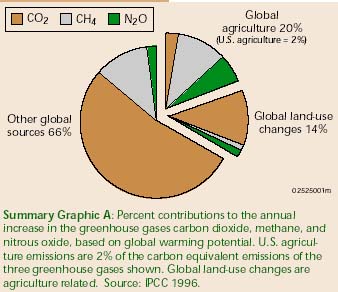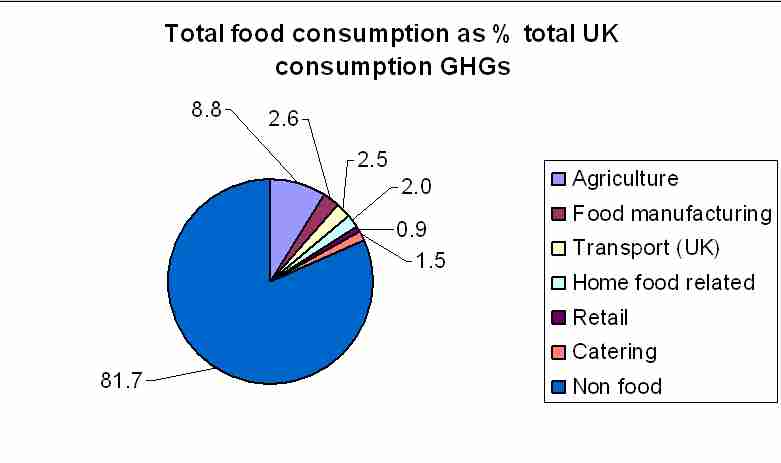| Issues
What about GM?
Disturbing the Carbon Cycle
Climate Change & Pathogens
| | Farming, Food and Climate Change Issues....
Farm Agriculture and food production make a massive contribution to global warming - and not just because of cows producing methane. Agriculture contributes to about 10% of the EU greenhouse gas (GHG) emissions and about 20% of world GHG emissions (Intergovernmental Panel on Climate Change 2001 Report on Mitigation)
Main emissions worldwide from agriculture are methane in meat production 31% , Nitrogen fertiliser 38% (Stern Report (Appendix 7g). See Nitrogen fertiliser for nitrous oxide - no laughing matter. The single greatest contribution is from land use change - from forest to arable.
Agriculture contributes about 7% of total UK greenhouse gas emissions. (More from DEFRA)
|
 |
Food
In UK, more contribution comes from the rest of the food chain in terms of distribution, manufacturing and consumption; this adds up to about 1/5th of all UK GHG emissions (Stats and graphic from FCRN)
Foods generate their main GHG emissions at different stages in the food chain..
|
Agriculture
|
Transport
|
Manufacture
|
Storage
|
Packaging
|
Cooking
|
Waste
|
|
Meat & dairy; glasshouse veg
|
Anything airfreighted eg. berries
|
Bread baking
|
Frozen peas or potatoes
|
Bottle of beer
|
Baked potato, pasta, tea, coffee
|
Fruit & veg
|
The biggest Food/Farming Carbon Dioxide Emitters in FTSE 100 (of those to declare) are Tate & Lyle (who also receive most CAP subsidy) and Associated British Foods. More from Trucost, Sunday Telegraph with full Telegraph FTSE graphic
Less carbon is returned to earth, as more is transformed to methane (landfill) and carbon dioxide (incineration & energy use) - both Greenhouse Gases.
|




